In the past few years, resin art has gained popularity. Novice and professional resin artists alike usually have a similar nagging question in the back of their minds. The specific question may differ slightly, depending on how health-conscious the resin artist is or whether she has underlying health conditions triggered by irritants in the air.
You should applaud yourself for asking these questions before you further experiment with creating art with epoxy resin.
My goal is not to scare anyone away from using epoxy resin in art projects. That would make no sense considering I am a resin artist and I do not plan on giving up my work with epoxy resin. However, the information contained in this article is some of the most vital information to have BEFORE you start working with epoxy resin.
I wish I would have known all this before instead of learning as I go. I may not have any negative health effects yet, but who knows what could be in store for me in the future simply because I did not know what precautions to take.
Check out the table of contents to review the topics covered in this post. You may also use the table of contents to jump to specific topics within the article if you are looking for specific safety information. Let’s get to it!
The goals of this article :
- Help artists/crafters understand the hazards present while working with epoxy resin.
- Identify the warning signs to watch out for that may signal adverse health effects, and
- Ultimately, to educate resin artists on ways to minimize the risk of developing health conditions while working with epoxy resin.
IMPORTANT
If you are experiencing adverse effects after exposure to epoxy resin chemicals, please make an appointment to see a health professional.
I would feel awful if something else was going on with your health and you dismissed it as a mild effect of epoxy resin exposure.
Also, if you are having any type of life-threatening emergency, always call 911 immediately.
The Dangers of Epoxy Resin: In General
Epoxy resin is a chemical and can be harmful to humans if handled irresponsibly.
The beauty of epoxy resin art makes it easy to forget the dangers associated with creating it. Forget about all the beautiful trinkets, sparkling coasters, and brilliantly shining countertops for a few minutes.
When working with epoxy resin you mix chemicals, inhale fumes, and risk contact with your bare skin. Industrial chemicals, like epoxy resin, have the potential to severely injure you if not used responsibly.
Although it is easy to leave your rose-colored glasses on, please take them off for a moment to familiarize yourself with the risks associated with epoxy resin.
In sum, epoxy resin is not as harmless as many believe.
Let us familiarize you with the potential dangers of working with epoxy resin and, more importantly, teach you how to best protect yourself from these risks.
What is Epoxy Resin
An epoxy resin is a liquid substance made up of two components: resin and hardener. When both parts are combined, the liquid hardens to plastic under the correct conditions.
Epoxy is used industrially for floor coatings, bonding construction materials, top coating boats, and more!
In the art community, epoxy resin is used for all sorts of projects, from paintings and coasters to trinkets and even night lights!
As we always say, the possibilities are endless with epoxy resin.
For more in-depth information about what epoxy resin is, check out Best Epoxy Resin For Art Projects–Everything You Need To Know.
Some epoxy resin manufacturers boast their products are safer to use than others on the market but do not be fooled. The one thing ALL epoxy resin products have in common is that none of them are 100% safe to use.
The fact that epoxy resin is mixed with hardener to create a chemical reaction to start the curing process means certain chemicals are released into the air that may be harmful.
Some epoxy resin manufacturers claim their product is ‘non-toxic,’ containing no VOCs or fumes. However, VOCs and fumes are not the only hazardous chemical compounds found in epoxy resin.
Remember that just because a product is advertised as nontoxic, it still may not be safe to use without the proper safety equipment.
I have lots of respect for the companies trying to make epoxy resin safer to use for artists and hobbyists, so I am in no way trying to bash them. However, no manufacturers have been able to formulate an epoxy resin that is 100% safe to use without taking any safety precautions to protect your health.
Still, I should mention, that the vast majority of people who use epoxy resin, especially those who only use it a few times, do not experience any adverse health conditions. Epoxy resin has been found to cause adverse health effects to less than 10% of users, but other studies cite certain symptoms (especially skin irritation) as occurring in a higher percentage of people.
However, do not assume you will be fine. Just take the recommended precautions seriously, for the sake of your health and the people who care about you. <3
Signs and Symptoms: Can you be Allergic to Epoxy Resin?
Now that you are aware that epoxy resin can be harmful to your health, let us address some of the side effects to watch out for while using epoxy resin.
One of the more interesting things about the health effects caused by epoxy resin is that a person can develop an allergy or sensitivity to epoxy resin over time.
For example, the epoxy resin user may have no issues using the epoxy resin for a few years. Then, out of nowhere, any exposure to epoxy resin causes an allergic reaction characterized by severe irritation to the skin and respiratory issues.
This cumulative effect of epoxy resin exposure (called sensitization) does not happen to everyone, but there is no way to know who is susceptible to developing this allergy. Also, there is no way to tell how quickly a person will develop this allergy.
Developing epoxy sensitization may be thje extreme case, but it is still possible to have any of the symptoms listed below without developing an extremely adverse reaction to epoxy resin.
Follow the suggestions for protection below to ensure you are using epoxy resin safely and avoiding any negative health effects.
Epoxy resin exposure can cause skin irritation, asthma lung issues, ear/nose/throat irritation, cancer, contact dermatitis, chemical burns, and lethargy. It can also affect the reproductive and nervous systems.
Let us examine each symptom individually.
List of Potential Health Effects From Epoxy Resin Use
- Skin irritation
- Asthma/ Lung Issues
- Reproductive System Effects
- Nervous system Issues
- Eyes, Nose, and Throat Irritation
- Cancer
- Contact Dermatitis
- Chemical Burns
- Lethargy
Further information about the Health Effects of Epoxy Resin
Rashes and Skin Irritation
Just a few drops of epoxy resin on bare skin can cause skin irritations, including inflammation and irritation. Irritation symptoms span from mild rashes to severe blisters. Other symptoms include redness, swelling, itching, and /or cracking of the skin.
If the skin is exposed to epoxy repeatedly, a person is more likely to develop severe skin conditions, like eczema. (see sensitization above) Eczema causes the skin to swell, itch and even blister.
Remember, epoxy resin has the ability to cause adverse health conditions over time even if the epoxy resin user had no issues when he first started using the resin.
This makes protecting your skin from contact with epoxy resin even more important. Sensitization, specifically, ‘late-onset’ skin irritation can be severe when caused by epoxy resin. Repeated exposure can cause a person to develop a severe allergy to epoxy resin.
Sometimes, developing sensitization to epoxy resin makes it impossible to ever use epoxy resin again. This is why it is so important to follow all recommended safety precautions.

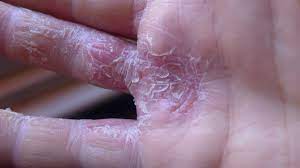
Prevention of Skin Irritation from Epoxy Resin
Always wear gloves when using epoxy resin. Even better, wear long sleeves to protect your bare skin from coming into contact with the epoxy resin.
Be mindful while working with epoxy resin. It is natural for humans to touch their faces unconsciously, multiple times a day. So, even if you have gloves on, you still need to be cognizant and careful not to touch the gloves to your face or anywhere else on your body where you have bare skin exposed.
Breathing Issues: Asthma and other Lung Problems
Liquid epoxy resin starts to emit vapors in into the air you breathe as soon as the bottles are open. Further, when the two parts are mixed together, more vapors are emitted.
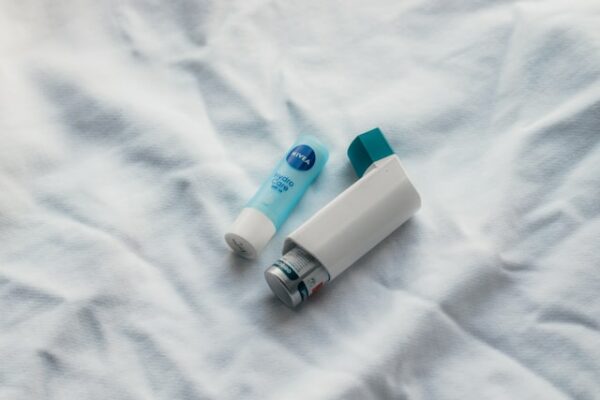
Some epoxy resins are odorless, so it may seem counterintuitive that you are breathing in any fumes, but they are still present. Others have an odor that helps warn users of the toxic vapors that they are breathing in.
As you mix your epoxy resin you are highly susceptible to breathing in these vapors. This often irritates the lungs.
Some people with epoxy resin exposed lungs develop asthma, which is a permanent breathing disorder. Symptoms of asthma are wheezing, coughing, and shortness of breath.
Remember fumes or vapors are emitted from epoxy resin when you open the bottles, while it is being mixed, while it is curing, and for up to 24 hours after it has cured.
Prevention of Asthma/Other Lung issues from Epoxy Resin
Be sure to ventilate the room you plan to do your epoxy resin project in. Good airflow helps move fumes away from you and out of the room you are working in.
If possible, pour epoxy resin outdoors.
Remember, epoxy resin emits fumes during the entire curing process so be mindful of where you leave your project to cure. As discussed above, epoxy resin continues to emit fumes up to 24 hours after curing is complete.
If you plan on completing a large epoxy resin project or expect to be exposed to epoxy resin in liquid form for long amounts of time, wear a good respirator.
This is the respirator I suggest you buy, as it is both affordable and lightweight:
Reproductive System Issues
Certain solvents in epoxy resins can have a negative effect on the reproductive system. Specifically, the solvents 2-ethoxyethanol and 2-methoxyethanol, which are known to reduce sperm counts in men.

Tests on animals found that some of the glycidyl ethers found in epoxy resins can cause congenital disabilities in animals. Congenital disabilities are disabilities present from birth. So, testing showed that animals exposed to glycidyl ether ended up having babies with disabilities. It is still not known whether epoxy resins can have the same effects on humans, but let’s not find out! Instead, just follow the prevention instructions below.
Importantly, these solvents only present a risk when epoxy resin is in a liquid state. As a liquid, epoxy resin that comes into contact with bare skin can absorb into the skin. This is how harmful solvents get into the body.
Prevention of Reproductive System Issues
Remember, harmful solvents from epoxy resin enter the body through bare skin contact, so covering the skin protects against any harmful side effects you may experience.
Wear gloves and long sleeves to protect yourself from overexposure to solvents in epoxy resin.
Nervous System Issues
Although many people will not experience any symptoms using epoxy resin, the people who do may exhibit symptoms indicating issues with their nervous system.

The effects of epoxy resin fumes and the solvents contained within can have devastating consequences on a user’s nervous system.
Solvents contained in epoxy resin can cause headaches and confusion if absorbed through the skin. These solvents can cloud your thinking and affect your ability to make decisions. They can cause you to feel hungry, nauseous, or even throw up.
Be careful: You should not put extra hours into epoxy resin projects. If you feel nauseous, itchy, or you are vomiting while working with epoxy resin, stop immediately and consult your doctor.
Unlike skin rashes or breathing issues, nervous system issues are a bit more insidious. You may not realize it is the epoxy resin causing the symptoms because many different things cause the same symptoms. The best bet is to stop using epoxy resin immediately to see if your symptoms clear up if you are unsure what is causing your symptoms.
Prevention of Nervous System Issues
Wear gloves and long sleeves to protect yourself from overexposure to solvents in epoxy resin. Wear a respiratory mask while working with resin. Goggles or shop glasses are also effective in protecting yourself from the effects epoxy resin may have on your body.
Eyes, Nose, and Throat Irritation
The eyes, nose, and throat can be affected by chemicals and vapors found in epoxy resins. Itchy eyes, dry eyes, dry cough, headaches, dry eyes, headaches, runny nose, blocked nose, sneezing, and chills are all possible symptoms.
As they may seem similar, don’t confuse your symptoms with those of the flu.
If you have any concerns that your symptoms are caused by the handling of epoxy resin, stop using epoxy resin and contact your doctor if symptoms persist.
This is one of the more common side effects of working with epoxy resin without the proper safety equipment.
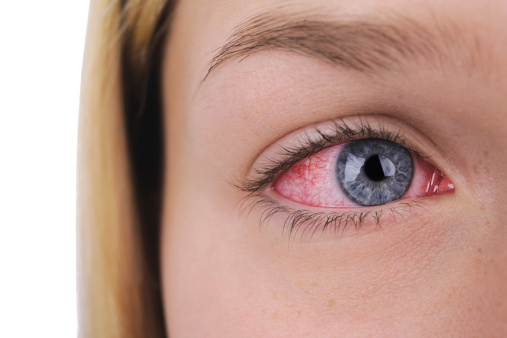
Like an epoxy allergy, ear, nose, or throat irritation may start slowly over time or hit a person all at once, making it impossible to continue working with epoxy resin.
The vapors in epoxy resin, which are specifically potent when hardener and epoxy are mixed together, can irritate the eyes, nose, and throat. Frequently, these irritations are accompanied by severe headaches.
If you get epoxy resin in your eyes, rinse immediately! While rinsing be sure to dial 911 or poison control to prevent long-lasting damage to your eyes.
Prevention of Eye, Nose, and Throat Irritation
Wearing a respirator mask is a fantastic way to reduce your chances of experiencing irritation in your nose and throat caused by epoxy resin. (See below for our number one suggestion for epoxy resin face masks.)
Always wear workshop glasses, or better yet, goggles, to protect your eyes while working with epoxy resin.
We recommend the following safety gear to protect your eyes, nose, throat, and lungs from irritation if you plan to work with epoxy resin:
If you are not wearing protective eye gear, be careful not to rub your eyes or nose if you have epoxy resin on your hands or gloves.
Another great way to avoid these types of effects from epoxy resin is to be sure to work in a well-ventilated space with air systems that pull the air out of the room and cycle clean air back in.
Be careful not to splash any epoxy resin into your eyes because it can cause severe damage. However, if it happens, go and rinse your eyes with water, and call for medical attention immediately after that.
There are also some safety precautions to follow after you have finished pouring your epoxy resin piece or painting. It is important to follow these because fumes are still being released post-pour during the entire cure process.
Stay away from your workspace after you have finished your project to avoid inhaling any fumes released during the curing process. Another option is to move the pieces that are curing into a different room so you do not inhale any of the vapors that are being let off during the curing process. It is also a good idea to wait until your pieces are fully cured before demolding them.
Keep in mind that some epoxies take 2-3 whole weeks to cure!
Cancer
Animal testing found that epoxy resin cause skin cancers. They believe the cancer is caused by a chemical called epichlorohydrin. Scientists believe this chemical also causes cancers in humans.
Fortunately, many brands of epoxy resin developed for use in artwork have newly formulated their products to contain less epichlorohydrin. However, it is still wise to take prevention measures and wear your safety gear.
Certain glycidyl ethers found in epoxy products have caused genetic mutations in test animals. However, we are not sure if glycidil ethers have the same effect on humans. Yet again, it is still wise to take precautions.
Prevention of Cancer
Just the word cancer should scare you enough to protect yourself at all costs. When prevention is as simple as being cautious with the material you are working with, wearing gloves, and donning a respirator and goggles, there is no excuse not to.
Although more extensive research/studies are necessary to determine exactly how closely related epoxy resin use and cancer are, it is always better to be safe than sorry.
Unlike rashes and some irritation, cancer does not always develop fast. In fact, symptoms may be long delayed. So if you think you have got off scot-free by not using protective equipment while working with epoxy resin, you may still be in for a shock later in life.
Wear your protective equipment, including a respirator, gloves/ glasses, and long sleeves. These precautions may save your life.
Contact Dermatitis
Contact dermatitis displays as a skin rash that can be very uncomfortable.
It is caused by epoxy resin coming into contact with bare skin.
Importantly, both resin and hardener independently can cause contact dermatitis.
Luckily, discomfort and pain from contact dermatitis usually subside when epoxy resin use stops.
However, sensitization may also occur, and repeated contact of epoxy resin with the skin can lead to chronic dermatitis. This long-lasting form of dermatitis may be much harder to treat.
Prevention of Contact Dermatitis
Always wear gloves when using epoxy resin. Even better, wear long sleeves to protect your bare skin from coming into contact with the epoxy resin.
Be mindful while working with epoxy resin. It is natural for humans to touch their faces unconsciously, multiple times a day. So, even if you have gloves on, you still need to be cognizant and careful not to touch the gloves to your face or anywhere else on your body where you have bare skin exposed.
Lethargy

If epoxy resin use is affecting your immune or nervous system, you may start to feel lethargic.
Lethargy is characterized by a feeling of tiredness and all-around weakness. The body and mind start to feel too weak to function and would rather just stay in bed even if well-rested.
Many of the symptoms above may cause lethargy, especially if you have developed sensitization to epoxy resin.
Be aware if you start to feel like this and contact a doctor immediately. (Obviously, stop all contact with epoxy resin at once!)
Prevention of Lethargy
Follow all suggested safety precautions recommended in this article while using epoxy resin.
It is wise to take breaks from using epoxy resin.
Often a couple of weeks of time between projects can ensure you are not affected by overexposure to the epoxy resin chemical.
If you have trouble completing a whole project, split the project pour into smaller segments to limit the amount of exposure you are getting in one sitting.
Take a break from epoxy resin projects every couple of weeks to ensure that you aren’t overexposed to resin.
You can also complete your work in smaller batches than trying to do it all at once.
Chemical Burns
As you know epoxy resin is a mixture of two parts, epoxy and hardener. Hardener is a corrosive chemical and can cause severe burns when it comes in contact with the skin.
Chemical burns develop slowly, but an early sign is usually discomfort or pain.
Some companies have been able to limit the corrosiveness of their hardeners, but it is always smart to consider all epoxy resin products you use as capable of producing chemical burns.
Take precaution.
Prevention of Chemical Burns
Always wear gloves when using epoxy resin, especially when pouring and m mixing both components together.
Wear long sleeves to protect your bare skin from coming into contact with the epoxy resin.
Do not touch your face while pouring or mixing your epoxy resin components.
If you spill any epoxy hardener, wear gloves to clean it up, and always throw away the towels you use to clean up the spill.
Be cognizant and careful not to touch your gloves to your face or anywhere else on your body where you have bare skin exposed.
Do Epoxy Resin Sanding Particles Cause Health Issues?
Yes! If you are sanding an epoxy resin project that has not cured fully, you may experience contact dermatitis. You may also develop breathing issues and any of the other issues that are caused by exposure to liquid epoxy resin. The specific health effects are all discussed above.
Remember, some epoxy resin takes up to a month to fully cure. If you can not wait that long, take precautions. These safety precautions include wearing a respirator and gloves, as well as covering all your bare skin.
Does this mean it is unsafe to work with resin?
Each person reacts to epoxy resin differently. Some people experience symptoms after a few days while others do not experience health effects for many years. Other still never have a side effect from working with epoxy resin.
Although the odds of not having any side effects are on your side, there is not way to determine who gets sick and who does not.
Epoxy sensitization can happen quickly or slowly and there is no way to tell who will experience the phenomenon.
What we do know, however, is that if you take the necessary safety precautions to protect yourself, epoxy resin is safe to work with.
How to Protect Your Health Working With Epoxy Resin
The following products are absolutely necessary for working with epoxy resin. We recommend using them every time you work with epoxy resin to protect against all of the above health issues.
Tips To Avoid Overexposure To Resin
Take the following precautions to avoid overexposure to epoxy resin:
- Work in a well-ventilated area.
- Always wear gloves and long sleeves.
- Wear a respirator to protect yourself from inhaling toxic fumes.
- Avoid spilling epoxy resin as much as possible.
- Wear Safety Goggles and do not rub your eyes or face.
- Let the resin cure completely before sanding or demolding.
- If you cannot wait until a full cure is achieved, follow all safety precautions as if the resin was still in its liquid form
- Buy a high-quality epoxy resin. (To see our top recommendations, check out Best Epoxy Resin For Art Projects–Everything You Need To Know)
- Follow all instructions on the epoxy resin product’s label.
- Pour in a room that you can leave while your epoxy resin cures or move your curing pieces outside to cure.
- Work in small batches.
- Take a break from epoxy resin every couple of weeks to reduce health problems.
I know how fun creating with epoxy resin is and I am in no way trying to discourage anyone from trying to create their own masterpieces. Just please take your health seriously and protect yourself!
Is epoxy resin hazardous to use?
Yes, but you should be fine if you take the proper precautions. If you are still confused about the risks associated with epoxy resin use, please read the MSDS, SDS, and PSDS for each resin brand you choose to work with. Understanding the threats presented by the specific product you are using will help you to better protect against any effects associated with exposure to the product. The information may also help you pick out the correct safety equipment. However, if you use the safety equipment we have recommended, you will be well protected against the negative health effects caused by using the epoxy resin.
We hope this article has provided you with some useful information on the health effects caused by epoxy resins and what to do to protect yourself. If you have any questions please comment below and we will respond as soon as possible. If you have any questions about a specific product you are using or a specific symptom you are having, please contact the resin manufacturer and your doctor respectively.
Happy Pouring!!
Questions addressed in this article
- How dangerous is working with epoxy resin?
- Can I have an allergy to epoxy resin?
- Is Epoxy Resin hazardous to my health?
- What health effects are caused by working with epoxy resin?
- Is Epoxy Resin safe to use for art?
- Are the adverse health conditions associated with working with epoxy resin mild enough to be considered ‘worth the risk?’
- Is there a safe way to work with epoxy resin?
- Are all epoxy resin products risky to my health?
- Can I be Allergic to Epoxy resin?
- What safety equipment should I use while working with epoxy resin?

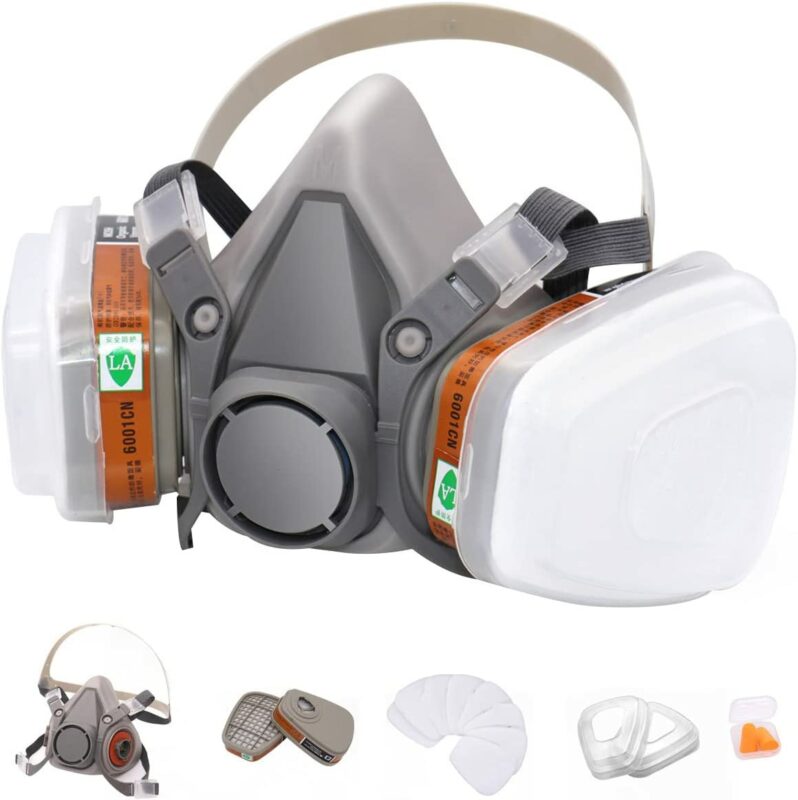
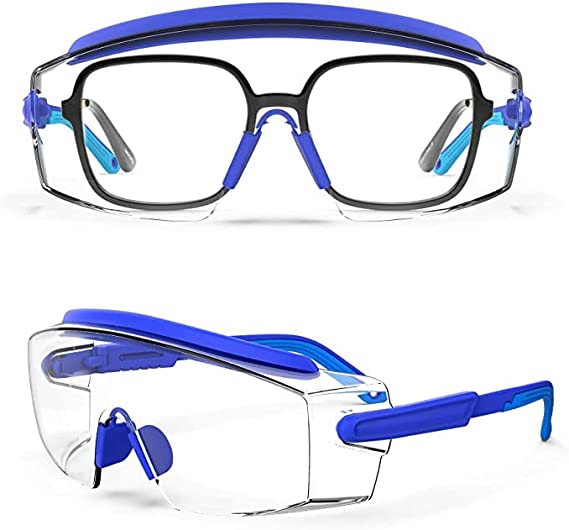

21 Responses
I thank you for writing this article because it is so important that people understand they should take precautions when working with chemicals like epoxy resin. I encountered issues with my health when using glue and prenandez pastes. I didn't know the irritants in the air and their persistence for 24 hours.
The fact that less than 10% have problems with skin irritation is encouraging, but I will still take precautions.
I was shaken by the description of the lethargy that occurs, I also had problems with this but for other reasons.
I have seen the use of the breathing apparatus in many people, but only now do I understand its importance.
Paintings, coasters, trinkets, they surely are not worth losing your good health so follow these instructions people!
Respectfully
Vasile,
Vasile, we also feel this is very important communication so thanks for stopping by!
I have been following this website for a while as this is something I definitely have to try for myself. The art you create using epoxy resins is stunning. However I would prefer to try getting some professional lessons in this before attempting to do it on my own.
Thank you for also pointing out the risks and how to protect yourself. There must be nothing worse than getting excema or skin cancer due to being careless with your crafting. I was surprised to see that the toxins can linger for so long while your piece is drying.
Michel, although we are not currently scheduled for any classes, we do offer 'a la carte' style classes, meaning we can schedule one on one classes in person, or even help you organize a group class with some friends. If you are close to Scottsdale, AZ, I come to you to teach the class. However, if you are further, I can set up online class(es) which are just as effective and fun! Check out Resin Art Workshops if you would like more information. Thank you for following our blog!
I've never personally used epoxy resin but I've always thought it was fascinating to watch! I would love to give it a try someday. So cool that you are a resin artist! You bring up excellent points and your article is detailed and caring. Thank you for taking the time to write this for everyone who may be concerned with the health side effects that come with the art of epoxy resin!
Jordan! It was a pleasure to write this article so thank you for stopping by to check it out. I hope we have inspired you to make some of your own resin art in the future
Before reading your post, I had never thought of this topic, and I admitted that I learned a lot from your sharing. You are an Epoxy Resin expert, making
this post credible and authentic. I love that you also include high-quality resin brands and protective tools in this article so that people can purchase them for their Epoxy Resin work. To create great art pieces with Epoxy Resin, everyone should read this post before. starting. ?
Thanks Matt!
Hi Ashley,
Thank you for sharing this vital information on the epoxy resins. I was involved in the auto body repair and paint business, and many epoxy resin products we used were very toxic, so we automatically wore gloves, long sleeves and a respirator. But, they had a strong smell and the fumes would affect your brain. and many people in the industry died young from liver or pancreatic cancer, It is no doubt caused by the strong chemicals. So, it is always a good idea to be over protected, rather than not wearing any protection, Those spots that are simple burns, can develop into something more deadly years later. And I don’t think the manufactures do enough to tell us about all the hazards from using their products.
Chas-
Thank you for sharing this information and I am sorry you lost fellow coworkers before their time. I agree that not enough is done on the side of the manufacturers to properly warn users. This may be exacerbated by the fact that resin products are now being marketed heavily to artists with claims of being nontoxic. It would br nice to believe all of claims but many of these companies outsource overseas and unfortunately, regulations are lax in many places. Thanks for showing us what can happen down-the-line if we don't take care to protect ourselves now.
Thanks for sharing these very helpful details on the effects of epoxy on our health. While I’m not familiar with its use, it’s always good to be informed about potential dangers so one can know how to better take good care.
First of all, it’s important to remember that anything has the potential to be hazardous if it’s not used properly.
From what I can tell, there are some potential health risks associated with exposure to the epoxy resin that you should be aware of and your guide has done justice to them.
When it comes to epoxy resin, I would say that it’s probably best to err on the side of caution by carefully following the helpful tips you have listed in this guide.
Thanks for bringing this to our attention!
Cheers,
Femi.
Hi there,
Long term effects of problematic substances like epoxy resins is such an overlooked issue by consumers. Your article addresses that and many more effects and that is just brilliant. Thank you for bringing this awareness about the dangers of epoxy resins. Like many people I have used this product but without this knowledge it is dangerous.
Thank you for sharing
Cheers
Angee
Thanks, Angee! I am glad I could provide some valuable information. Happy Crafting!
We knew that epoxy is toxic but this has opened our eyes to what epoxy can to do to our health and skin the irritation of the eyes and skin seems to be not good considering that we have epoxy resin art.
We have not broken out with any hives or irritation of the skin. Glad that you have covered the hazardous tips on resin epoxy art, it is on the rise of this art and hope that companies do get hip to making nontoxic chemicals to make awesome art.
Cheers,
MnD
I want to be very clear, once Epoxy Resin has cured, aka dried completely, it is 100% SAFE. This means that any epoxy resin artwork in your home is completely safe and will not affect your health. The health effects are only caused by epoxy resin that is in liquid form or still curing.
I do not want to scare anyone and make them throw away their art or something like that! This is just an article to help epoxy resin artisans stay safe while creating.
I hope I was clear enough about this. Thanks for stopping by!
Epoxy resin is a miracle
mixed with hardener
it flows like liquid
filling every crack
and flaw
until the surface is smooth
hard and shiny
a work of art
that will last forever.
Epoxy resin is so strong
But be careful when you use it
It can be very harmful
If you're not careful it will burn
Your skin and it will stain
Your clothes so be sure to wear
Something you don't mind getting dirty
When you're using epoxy resin
Be very careful, it's not a toy.
You are right to point out thye precautions people need to take!
Great poem! Thanks Julia!!
Hi Friend
Thanks for sharing extensive information on the hazardous effects of epoxy on our health. It is fun and memorable to use epoxy items all over our house but the information you provided forced me to think of regular use of epoxy items to be continued or not. One thing is for sure- precautions need to be taken while using epoxy and until it is curated. That is the only way which can save us.
Warm Regards,
Gaurav Gaur
Guarav, thanks for stopping by and I am glad I could provide this info for you. I want to make it very clear that once epoxy resin items are cured, they are not toxic at all. So precautions only need to be taken during the mixing, pouring, and curing process. Let me know if you have any questions next time you sit down to use this amazing product!
I have worked with a number of resins including epoxy resins and I always believed that they were not bad for health.Buy rightly said, we cannot dismiss indicators which might have long term effect saying its nothing. Statistics of adverse effect on 10 percent population means something and one should be wary of the risks carried by epoxy resins.
Hence, better safe than sorry- always wear protective gear while working with epoxy resins.
Great informative article.
Thanks for sharing.
Regards,
Rohit
Rohit, absolutely.
I publish a lot of tutorials, some of them I do not even wear gloves, but I am really working on that. Trying to set a good example and take care of my own health! Although I do not have adverse reactions to epoxy resin (yet at least) I would feel so awful if one of my readers followed my lead and ended up getting sick.
Therefore, I thought this information was really important and I had not been able to find it all in one place, so I figured I would compile it for those who are interested.
Thanks for stopping by and stay safe.